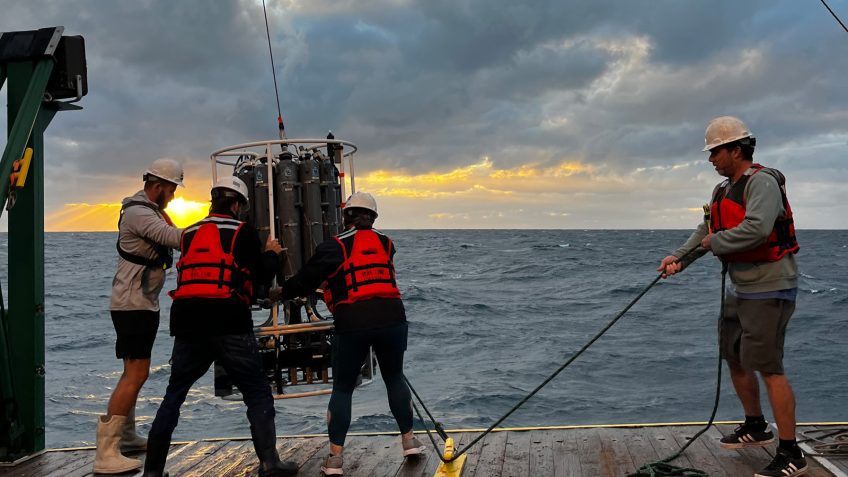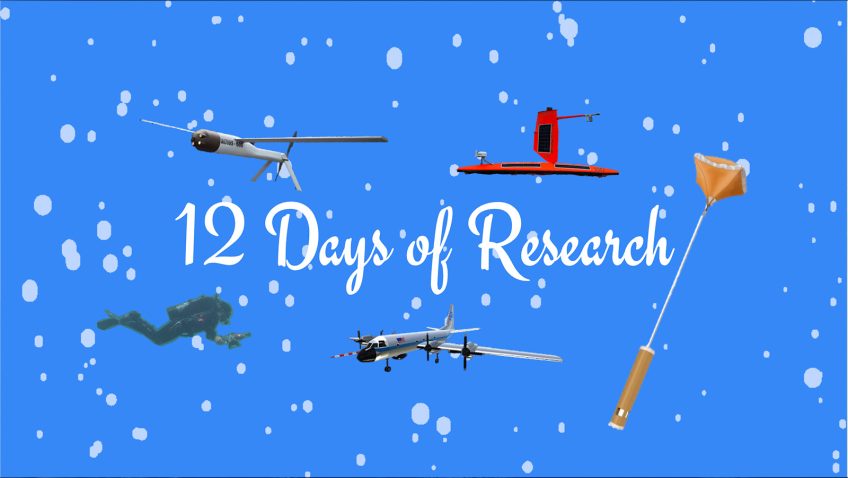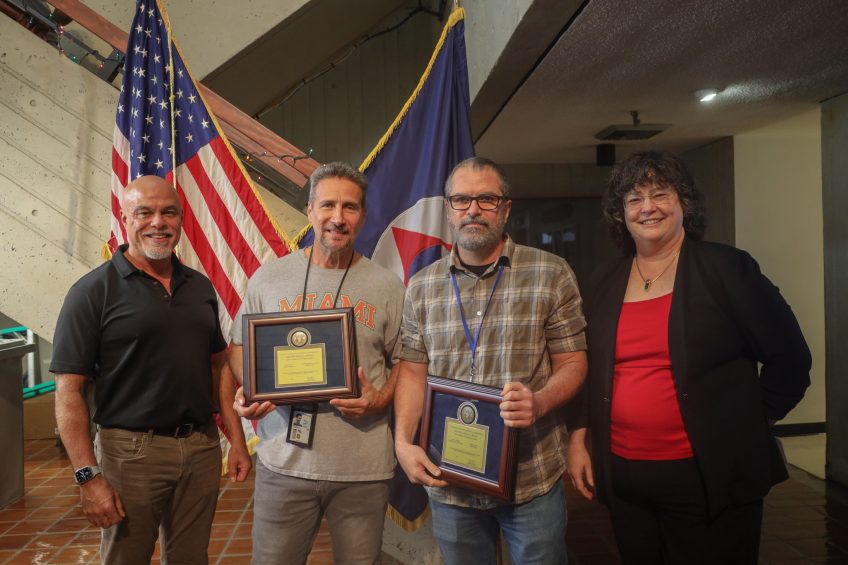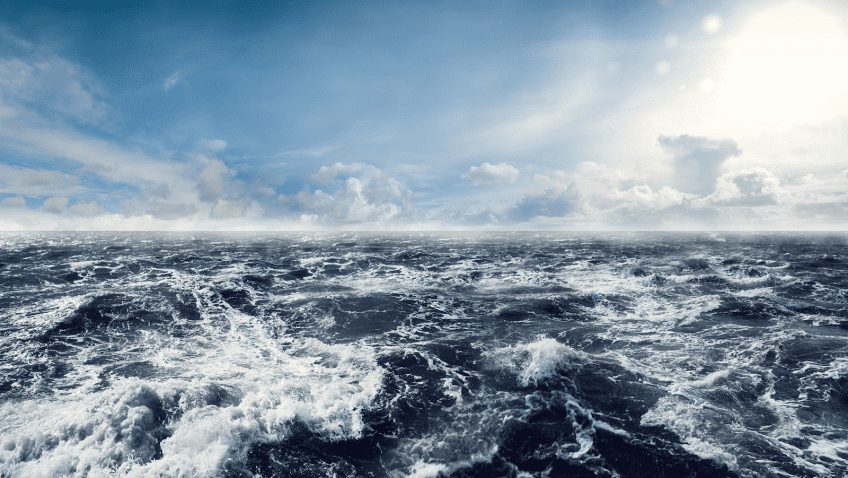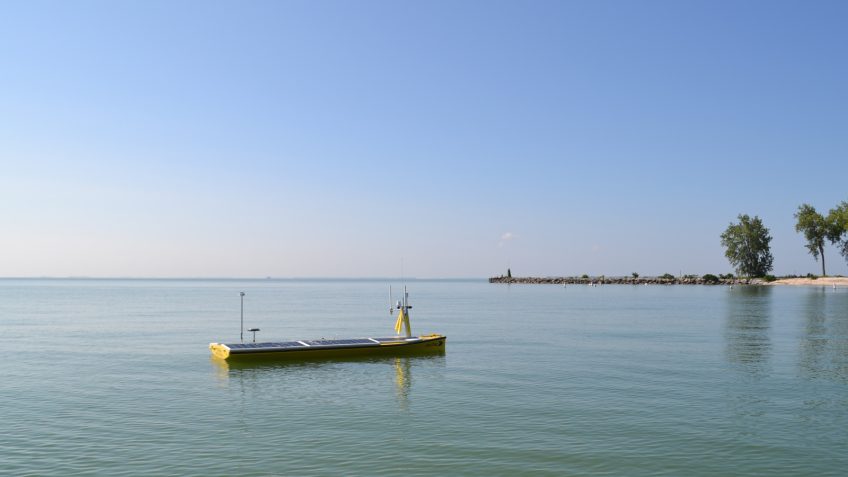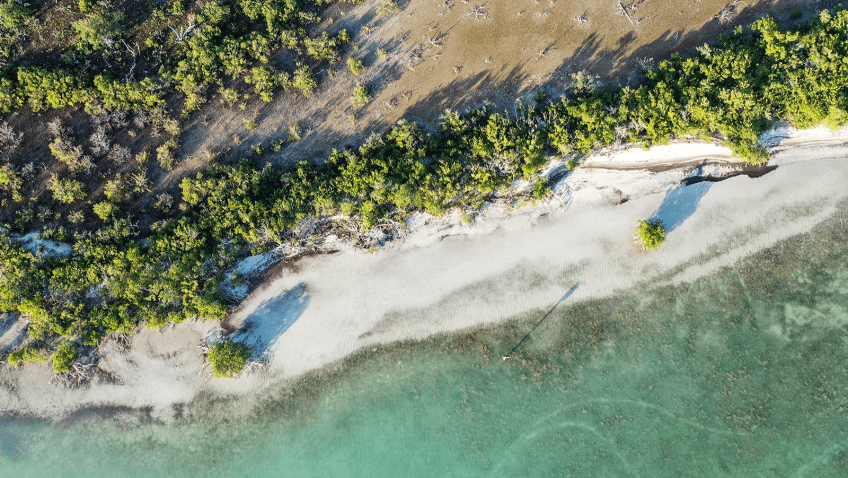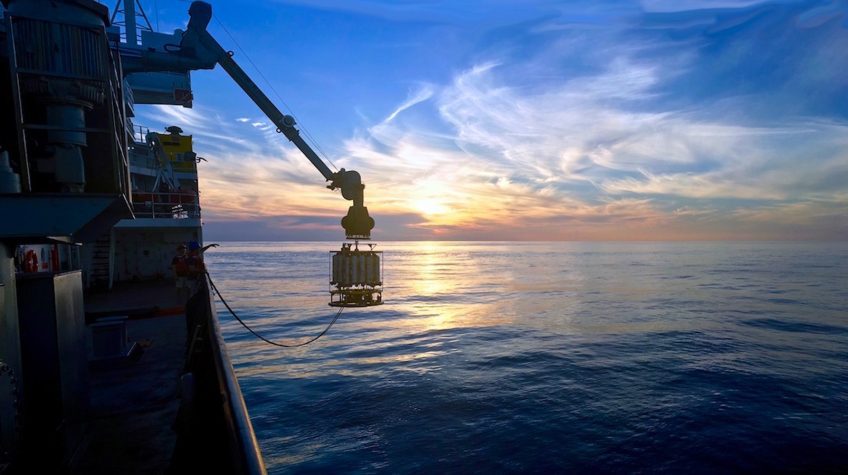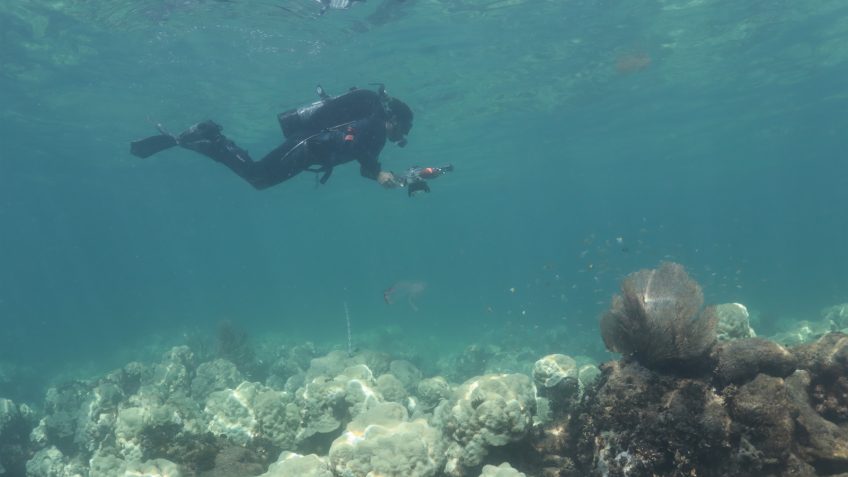A groundbreaking new study spanning more than a decade and hundreds of miles of the Florida Coral Reef demonstrates the key role benthic communities play in reducing the impacts of climate change on coral reef ecosystems, specifically Ocean Acidification.
Read Full Article
Happy Holidays to all! As we close out 2023, join us as we look back at some of our top research highlights this year! From responding to heat waves to setting records and launching new tech, our dedicated team continues to push the boundary in an effort to support NOAA’s mission to build a climate-ready […]
Read Full Article
Digital Coral Morphology Advancing coral conservation & restoration by exploring structure and reef complexity SCROLL TO LEARN MORE <!-- --> Corals provide the physical structure that supports a staggering and vast diversity of life on a reef ecosystem, but the persistence of these complex structures is heavily influenced by changes in ocean chemistry and the [...]
Read Full Article
AOML scientists, staff, and team members were recognized this year for their outstanding contributions and dedication to NOAA’s mission. The following individuals and teams are recipients of prestigious awards that acknowledge their dedication to sharing our mission and initiatives with the community, fostering deeper connections and leaving a lasting, positive impact on the lives of those we […]
Read Full Article
According to the newest Global Carbon Budget report, global emissions continue to rise and must be significantly reduced to meet global climate targets and avoid severe and deleterious effects of climate change. In 2023, atmospheric carbon dioxide (CO2) concentrations are expected to reach 419.2 ppm, an estimated 51% above pre-industrial levels, with 36.8 billion metric [...]
Read Full Article
For engineers and scientists, sometimes failure means progress. When developing a new technology, the process is to field test, fail, tweak, and test again, each time failing a little less and learning what does and does not work until – finally – they get it right. On August 5, 2023, scientists from NOAA’s Great Lakes […]
Read Full Article
NOAA announced $4.2 million in funding awarded to a collaborative project entitled the Florida Regional Ecosystems Stressors Collaborative Assessment (FRESCA), co-led by NOAA’s Atlantic Oceanographic & Meteorological Laboratory (AOML) and the University of Miami, and involving seven different academic and research institutions.
Read Full Article
A landmark study published last week demonstrates that the ocean’s role as a carbon sink and its ability to store anthropogenic, or human-caused, carbon may be weakening. A collaboration among international researchers led by Jens Daniel Müller, Ph.D. (ETH Zurich), this study captures a snapshot of three decades of global interior ocean measurements to determine […]
Read Full Article
The growing concerns of coral bleaching due to the ongoing marine heatwave across South Florida, the Gulf of Mexico, and the greater Caribbean led scientists at NOAA’s Atlantic Oceanographic & Meteorological Lab (AOML) to return to Cheeca Rocks on July 31st and August 1st, 2023.
Read Full Article
LT Tim Holland NOAA Corp Officer, Atlantic Oceanographic and Meteorological Laboratory 720.310.0458 Timothy.Holland@noaa.gov Tim_Holland 4301 Rickenbacker Causeway Miami, Florida 33149 AboutCurrent WorkEducationAbout Tim Holland is a Lieutenant (O-3) in the National Oceanic and Atmospheric Administration Commissioned Officer Corps (NOAA Corps). Over the last few years, he has been supporting the science mission of NOAA. As [...]
Read Full Article
